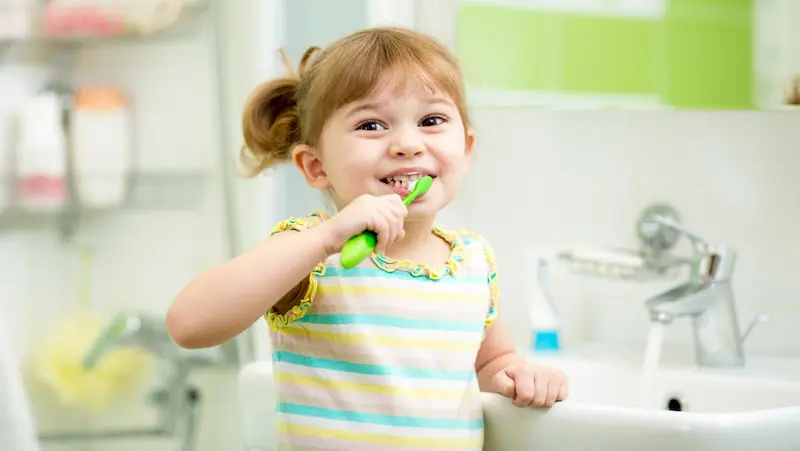In today’s fast-paced and ever-changing world, the kids health and well-being of our children have become more crucial than ever before. Understanding the vitality of children’s health is paramount to ensuring their overall development and a promising future.
This introduction explores the key aspects that contribute to the well-being of our young ones, highlighting the significance of nurturing their physical, mental, and emotional health for a thriving society.
Table of contents
Physical Health for Kids
As parents, caregivers, and educators, one of our most crucial responsibilities is nurturing the physical health of our children. From developing kids healthy eating habits to ensuring they get enough exercise and rest, promoting their well-being sets the stage for a lifetime of good health.

Healthy Eating Habits: Building Nutritious and Balanced Meals
A balanced diet is fundamental to a child’s growth and development. Encourage a variety of foods that provide essential nutrients, including fruits, vegetables, whole grains, lean proteins, and dairy. Minimize processed and sugary snacks, opting for healthier alternatives instead.
Hydration and Water Intake: The Importance of Staying Hydrated
Water is vital for maintaining optimal bodily functions. Ensure that your child drinks an adequate amount of water throughout the day. Provide a reusable water bottle and remind them to take sips regularly, especially during physical activities.
Active Play and Exercise: Encouraging Physical Activity
Physical activity is not only fun but also essential for building strong muscles, bones, and overall fitness. Encourage active play and exercise by providing opportunities for outdoor games, sports, or family activities like hiking or cycling.
Mental and Emotional Health for Kids
In a fast-paced world, children’s mental and emotional health is paramount. As parents and caregivers, it’s essential to guide them toward emotional expression, coping skills, stress management, and mindfulness.

Emotional Expression: Encouraging Healthy Communication
Helping children understand and express their emotions lays the foundation for kids healthy relationships and self-awareness. Create a safe space where they can openly discuss their feelings without judgment. Listen actively and validate their emotions, teaching them that it’s okay to feel and express themselves honestly.
Coping Skills: Building Resilience and Emotional Intelligence
Life inevitably brings ups and downs, but resilience equips kids to bounce back from setbacks. Encourage them to solve problems, face challenges, and learn from failures. By helping children understand their emotions and the emotions of others, we develop their emotional intelligence, allowing them to navigate social situations with empathy and compassion.
Stress Management: Nurturing Emotional Well-Being
Stress is a natural part of life, even for children. As parents, we can teach our kids effective stress management techniques. Engage in activities together that promote relaxation, like spending time in nature, engaging in hobbies, or doing breathing exercises.
Dental Health for Kids
As parents, ensuring the well-being of our children is a top priority, and dental health plays a vital role in their overall development. Teaching kids proper oral hygiene from an early age sets the foundation for a lifetime of healthy smiles.

Oral Hygiene: Establishing Good Brushing and Flossing Habits
a. Start Early: Begin caring for your child’s oral health as soon as their first tooth emerges. Use a soft, age-appropriate toothbrush and a grain-sized amount of fluoride toothpaste for babies, and a pea-sized amount for toddlers and older children.
b. Brushing Techniques: Teach your kids how to brush properly, using gentle circular motions to clean all tooth surfaces and the gum line. Encourage them to brush for at least two minutes, twice a day.
Dental Visits: Importance of Regular Dental Checkups
a. Early and Regular Visits: Schedule your child’s first dental checkup within six months after their first tooth appears, or no later than their first birthday. Follow up with regular visits every six months to monitor their dental health.
b. Prevention is Key: Regular dental checkups allow the dentist to detect any potential issues early, preventing them from becoming more significant problems in the future. It also helps reinforce positive dental habits and address any concerns you might have.
Healthy Habits for School and Learning
As students, our health and well-being play a pivotal role in our academic success. It’s essential to maintain healthy habits that not only support our learning but also contribute to our overall well-being.

School Hygiene: Practicing Good Sanitation Habits
Regular Handwashing:
One of the simplest yet most effective ways to prevent the spread of germs is regular handwashing. Before and after meals, after using the restroom, and after being in public spaces, make it a habit to wash your hands thoroughly with soap and water for at least 20 seconds.
Proper Cough Etiquette:
Coughs and sneezes can spread infections, so it’s crucial to cover your mouth and nose with a tissue or your elbow to minimize the risk of transmission. Dispose of used tissues immediately and wash your hands afterward.
Creating a Healthy Study Environment: Balancing Learning and Well-Being
Establish a Routine:
Create a study routine that allows for a healthy balance between learning and other activities. Set specific study hours, breaks, and bedtime to ensure you get enough rest and maintain optimal focus.
Stay Active:
Regular physical activity is crucial for both physical and mental health. Incorporate exercise into your daily routine, even if it’s a short walk or some stretching exercises, to boost energy levels and reduce stress.
Screen Time and Digital Health for Kids
In today’s digital age, children are exposed to screens from a very young age, be it smartphones, tablets, or computers. While technology offers numerous educational and recreational opportunities, it is essential for parents and caregivers to ensure that screen time is managed responsibly.

Screen Time Guidelines:
It is crucial to strike a balance between digital media consumption and other activities to promote healthy development. The American Academy of Pediatrics recommends the following guidelines for different age groups:
1. 0 to 18 months: Avoid screen time, except for video chatting with family and friends.
2. 18 to 24 months: Introduce high-quality, educational content under adult supervision.
3. 2 to 5 years: Limit screen time to 1 hour per day of high-quality programs and co-view with them.
4. 6 years and older: Set consistent limits on screen time, ensuring ample time for physical activities, homework, and sleep.
Online Safety Tips:
Protecting children in the digital world is of utmost importance. Here are some essential online safety tips:
Parental Controls: Implement parental control settings on devices to filter content and manage screen time effectively.
Privacy and Personal Information: Teach kids to be cautious about sharing personal information online and interacting only with known individuals. Learn about game coding for kids also.
Outdoor Activities and Nature’s Impact on Health
In today’s fast-paced world, finding moments of tranquility and peace has become increasingly important for maintaining good health. Thankfully, nature offers a therapeutic haven that is readily accessible to all – the great outdoors.

Stress Reduction:
One of the most remarkable benefits of outdoor activities is their ability to reduce stress. The calming sounds of rustling leaves, chirping birds, and flowing water can create a sense of serenity that helps alleviate anxiety and tension.
Mental Clarity and Focus:
When we step away from the constant distractions of screens and technology, our minds can find clarity and focus in nature. The vast landscapes and fresh air provide an ideal environment for contemplation and self-reflection, fostering creativity and mental sharpness.
Physical Health:
Embracing nature’s playground offers a myriad of physical health benefits. Outdoor activities like hiking, biking, and swimming engage different muscle groups and promote cardiovascular health.
Conclusion
In conclusion, prioritizing children’s health is paramount for optimal growth and development. By ensuring access to nutritious food, proper healthcare, and a safe environment, we can lay the foundation for a healthier and brighter future for the next generation.
Investing in children’s health early on not only benefits their physical and mental well-being but also contributes to building a more prosperous and sustainable society overall. Let us dedicate our efforts to securing a healthier world for our children, as they are the key to a thriving future. Learn about kids coding languages too.
Also, BrightChamps provides a comprehensive platform for learning about money for kids, offering interactive and engaging resources that teach financial literacy, budgeting, saving, and other essential money management skills.
Frequently Asked Questions
A1. 1. Offer a variety of colorful fruits and vegetables.
2. Involve them in meal planning and preparation.
3. Be a positive role model for healthy eating.
4. Limit sugary snacks and drinks.
A2. 1. Encourage open communication and active listening.
2. Engage in creative and imaginative play.
3. Promote outdoor activities and nature exploration.
4. Practice mindfulness exercises together.
A3. 1. The recommended guideline is at least 60 minutes of moderate to vigorous activity.
2. Activities can include sports, active play, or recreational activities.
A4. 1. Schedule well-child checkups with a pediatrician at least once a year.
2. Additional visits may be necessary based on specific health needs.
A5. 1. Set clear and reasonable screen time limits.
2. Encourage alternative activities like reading, playing outdoors, or hobbies.
3. Create tech-free zones and times, such as during meals and before bedtime.


 We are an army of educators and passionate learners from BrightChamps family, committed to providing free learning resources to kids, parents & students.
We are an army of educators and passionate learners from BrightChamps family, committed to providing free learning resources to kids, parents & students.







